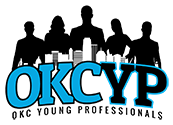Self-Care isn’t Self-ish
Braden Ross, President and Founder of Clear Path Leadership
Many of my clients struggle to set aside time for their own self-care, and to tell you the truth, it doesn’t surprise me much. High-performing leaders are driven to succeed in all areas of their life, and they often care deeply about the people and the causes they serve. Most days, they spend so much time looking after the needs of others that they don’t have any time or energy left to pour back into themselves.
What they don’t realize is that, by failing to take care of themselves, they are doing others a disservice. You can’t fill others’ cups if your own cup is empty. This is why I have to run on days when I don’t feel like parenting.
That’s an odd statement to make, so let me explain. I’m a parent of two young children. I have a five-year-old son and a two-year-old daughter. I love my children more than anything in the world, but as any parent will tell you, they demand nearly all my energy most days.
When I get a break, my instinct is to veg out. I’ll turn on my Xbox or I’ll flip through my social media feeds. It’s a great way to kill time and disengage, but it doesn’t offer much of a return.
What does positively impact my mood is running. I’ll go to the trail at Oklahoma Christian University or Lake Hefner and get a few miles in, or I’ll run laps at the Mitch Park YMCA if the weather isn’t ideal (I’m too much of a wimp to run outside when it’s cold or raining). Although the initial decision to go running can be challenging, I’m always grateful that I made that choice, and I notice an immediate impact on how I relate to my children.
The same is true about my work. I can’t tell you how differently I feel about starting work on a day when I wake up early and spend time lifting weights, reading, or journaling compared to when I roll out of bed and immediately walk over to my desk.
There are two critical takeaways about self-care to notice here. First of all, not all self-care is created equally. I receive way more benefits from running or picking up a book than I do from Xbox or social media. I’m not saying those are inherently bad things (I still play Xbox once or twice a week), but I can’t rely on them for my ongoing mental and emotional well-being.
The second lesson is that the best forms of self-care often require an initial deposit of energy. I learned this back in 2021 when I read “The Ruthless Elimination of Hurry” by John Mark Comer. Before I read his book, I often thought about rest as a complete disengagement. Comer would argue instead that the best forms of rest – meaning the forms of rest that offer the highest return – are the ones that require us to put forth some degree of effort at the beginning. Whether it’s exercise, reading, doing something with our hands, or calling a friend to chat, these forms of self-care are more likely to leave us feeling better after we’re finished.
As we begin a new year, I challenge you to think about how you can take better care of yourself. We're all stretched thin most days between work, family, and other obligations. However, when you learn to care for yourself, you’ll put yourself in a better position for long-term success and fulfillment. Your family, friends, team, organization, and community will also benefit.
Post content here.
